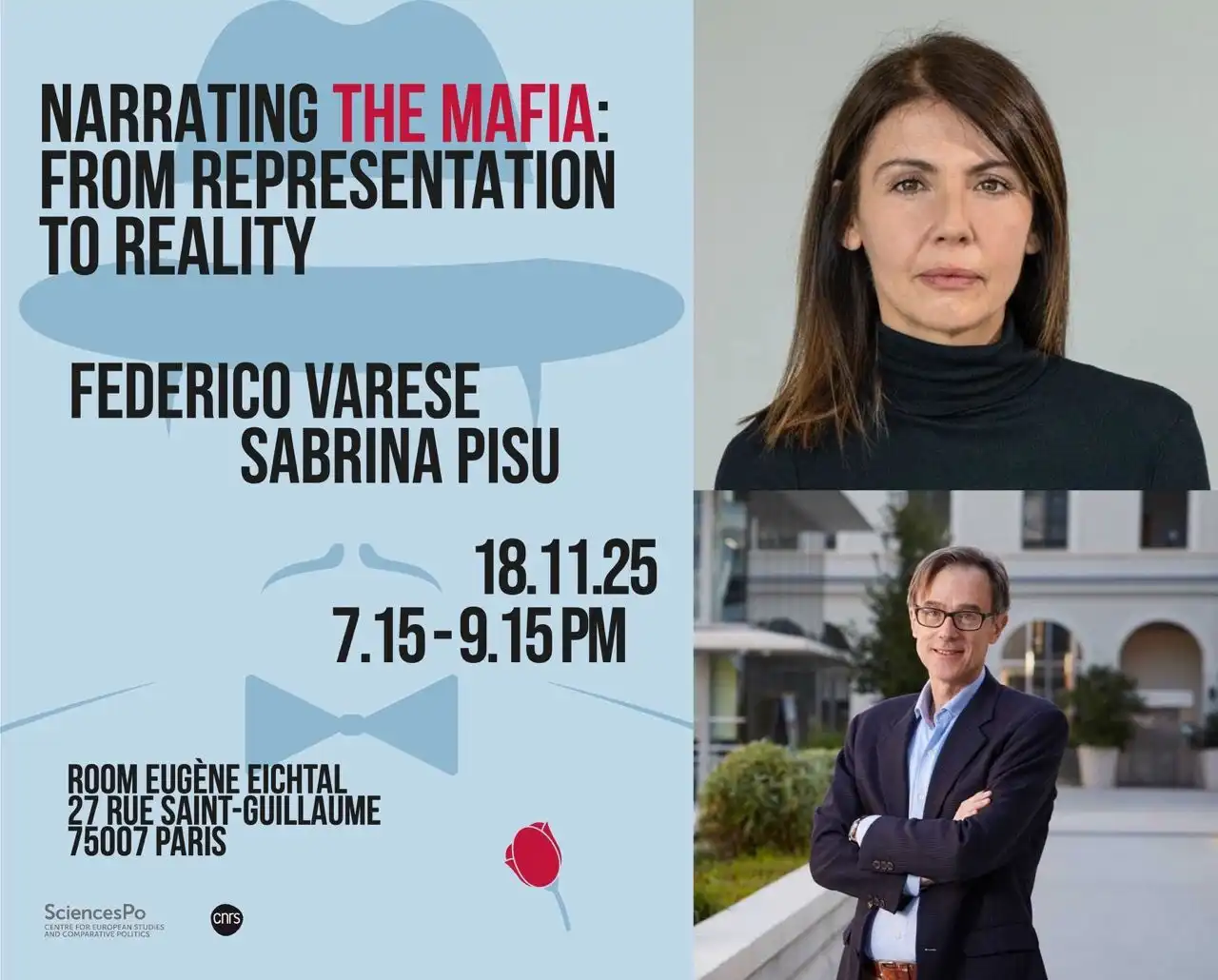Home>[Conference] Narrating the Mafia: From Representation to Reality
18.11.2025
[Conference] Narrating the Mafia: From Representation to Reality
About this event
18 November 2025 from 19:15 until 21:15
Jacques Chapsal Amphitheatre
27 rue Saint-Guillaume, 75007, ParisOrganized by
Centre for European Studies and Comparative Politics (CEE)How has creative culture shaped the public's understanding of the Mafia? What role do literature, photography, and cinema play in both perpetuating and challenging myths, stereotypes, and the often glamorized portrayals of the Mafia—particularly among younger audiences? What use does the Mafia make of these depictions? How do narrative choices, visual framing, and language either reinforce silence or foster critical awareness and collective action against organized crime?
This session at Sciences Po brings together Federico Varese, Professor of Sociology and author, and Sabrina Pisu, journalist and author, to discuss these issues.

Federico Varese, Professor of Sociology at the Centre for European Studies and Comparative Politics, is the 2024 recipient of the Thorsten Sellin, Sheldon and Eleanor Glueck Award from the American Society of Criminology, recognizing his “outstanding contributions to the field of criminology.” An internationally acclaimed authority on organized crime, Varese is the author of numerous influential works, including Russia in Four Criminals (2024), Mafia Life (2017), Mafias on the Move (2011), and The Russian Mafia (2001), as well as many scholarly articles. He is the Principal Investigator of the ERC Advanced Grant CRIMGOV, and has conducted fieldwork in Italy, Russia, Colombia, Georgia, and Armenia. In Mafia Life, Varese explores the connections between cinematic representations and real-world mafia activities.
Sabrina Pisu, an award-winning journalist and author, investigates in her book Je m’empare du monde où qu’il soit (Actes Sud, 2025, forthcoming in English) the work of photographer Letizia Battaglia, who stripped away layers of romanticism surrounding the Mafia. Battaglia’s powerful and empathetic images redirected public attention toward the lived realities of communities affected by—and resisting—organized crime in Palermo. Through her lens, photojournalism became a form of civic resistance and political engagement. Pisu also reflects on the risks of rhetorical narratives that frame the struggle against the Mafia as the endeavor of isolated “heroes,” rather than as a collective and systemic effort.
About this event
18 November 2025 from 19:15 until 21:15
Jacques Chapsal Amphitheatre
27 rue Saint-Guillaume, 75007, ParisOrganized by
Centre for European Studies and Comparative Politics (CEE)